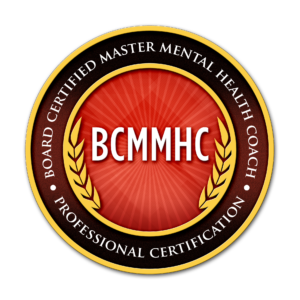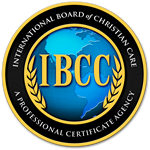Coping with Intrusive Thoughts:
Strategies for Addiction Recovery & Mental Well-being
6/11/20243 min read


Coping with Intrusive Thoughts: Strategies for Addiction Recovery & Mental Well-being
Intrusive thoughts are unwanted and often distressing thoughts that can suddenly pop into our minds. They can be particularly challenging, affecting our mental well-being and peace of mind. These thoughts are a common experience, but understanding and managing them effectively can significantly improve our mental health. Here, we'll explore various strategies for coping with intrusive thoughts, incorporating both psychological techniques and scriptural wisdom.
Understanding Intrusive Thoughts
Intrusive thoughts are involuntary, and they can be bizarre, disturbing, or simply unwanted. According to clinical psychologist Dr. Debra Kissen, these thoughts often stem from anxiety and stress, highlighting the importance of addressing underlying emotional issues (Kissen, 2020). It's crucial to remember that having intrusive thoughts does not reflect your character or intentions; they are just thoughts, not actions.
Psychological Strategies
Cognitive Behavioral Therapy (CBT): CBT is a highly effective approach for managing intrusive thoughts. It involves identifying and challenging negative thought patterns and replacing them with healthier ones. Research shows that CBT can significantly reduce the frequency and impact of intrusive thoughts (American Psychological Association, 2017).
Mindfulness and Meditation: Practicing mindfulness helps in observing thoughts without judgment, allowing them to pass without causing distress. Meditation can train the mind to focus and remain calm, reducing the impact of intrusive thoughts (Hoge et al., 2013).
Acceptance and Commitment Therapy (ACT): ACT encourages accepting intrusive thoughts without trying to change them, focusing instead on living a value-driven life. This approach reduces the power of intrusive thoughts by acknowledging them without giving them undue attention (Hayes, 2004).
Intrusive Thinking and Addiction Recovery
Intrusive thoughts can be particularly challenging for individuals in addiction recovery. These thoughts can trigger cravings and undermine the recovery process. However, several strategies can help manage intrusive thinking during recovery:
Trigger Identification and Management: Recognize and avoid triggers that can lead to intrusive thoughts related to addiction. Developing a plan to manage these triggers can help maintain sobriety.
Support Groups: Engaging in support groups like Alcoholics Anonymous (AA) or Narcotics Anonymous (NA) can provide a community of understanding individuals who can offer support and share coping strategies.
Relapse Prevention Planning: Create a relapse prevention plan that includes coping strategies for dealing with intrusive thoughts and cravings. This plan should outline steps to take when faced with high-risk situations.
Therapeutic Interventions: Therapy, especially approaches like CBT and ACT, can be highly effective in addressing the intrusive thoughts that accompany addiction recovery. These therapies can help individuals develop healthier thought patterns and coping mechanisms.
Scriptural Insights
The Bible offers profound insights into dealing with intrusive thoughts and maintaining mental well-being:
Renewing the Mind: The Apostle Paul advises, "Do not be conformed to this world but be transformed by the renewal of your mind, that by testing you may discern what is the will of God, what is good and acceptable and perfect" (Romans 12:2, ESV). This renewal involves aligning our thoughts with God's truth, which can help counter negative and intrusive thoughts.
Guarding the Heart: Proverbs 4:23 states, "Keep your heart with all vigilance, for from it flow the springs of life" (ESV). This scripture emphasizes the importance of protecting our inner life and being mindful of what we allow to influence our thoughts and emotions.
Casting Cares on God: Peter advises, "casting all your anxieties on him, because he cares for you" (1 Peter 5:7, ESV). This scripture encourages us to entrust our worries and intrusive thoughts to God, seeking His peace and guidance.
Thinking on Positive Things: Philippians 4:8 encourages focusing on what is true, honorable, just, pure, lovely, commendable, excellent, and praiseworthy. By directing our thoughts towards positive and uplifting things, we can counter the negativity of intrusive thoughts.
Practical Steps for Coping
Identify Triggers: Recognize situations or stimuli that trigger intrusive thoughts. This awareness can help you prepare and employ coping strategies more effectively.
Develop Healthy Routines: Regular exercise, a balanced diet, and sufficient sleep are essential for maintaining overall mental health. These habits can reduce stress and anxiety, which often contribute to intrusive thoughts.
Seek Professional Help: If intrusive thoughts become overwhelming, it is important to seek help from a mental health professional. Therapy and counseling can provide tailored strategies and support for managing these thoughts.
Stay Connected: Engage with a supportive community, such as a church group or a circle of trusted friends and family. Sharing your experiences and receiving encouragement can make a significant difference.
Conclusion
Coping with intrusive thoughts requires a multifaceted approach, combining psychological strategies with spiritual wisdom. By understanding the nature of these thoughts, employing effective mental health techniques, and drawing on the strength and guidance offered in scripture, we can navigate this challenge and maintain our mental well-being. Remember, it's a journey, and seeking support along the way is a sign of strength and resilience.
References:
American Psychological Association. (2017). What is Cognitive Behavioral Therapy?
Hayes, S. C. (2004). Acceptance and Commitment Therapy, Relational Frame Theory, and the Third Wave of Behavioral and Cognitive Therapies. Behavior Therapy, 35(4), 639-665.
Hoge, E. A., et al. (2013). Randomized controlled trial of mindfulness meditation for generalized anxiety disorder: effects on anxiety and stress reactivity. Journal of Clinical Psychiatry, 74(8), 786-792.
Kissen, D. (2020). How to Stop Intrusive Thoughts. Anxiety and Depression Association of America.
The Holy Bible, English Standard Version. (ESV).









